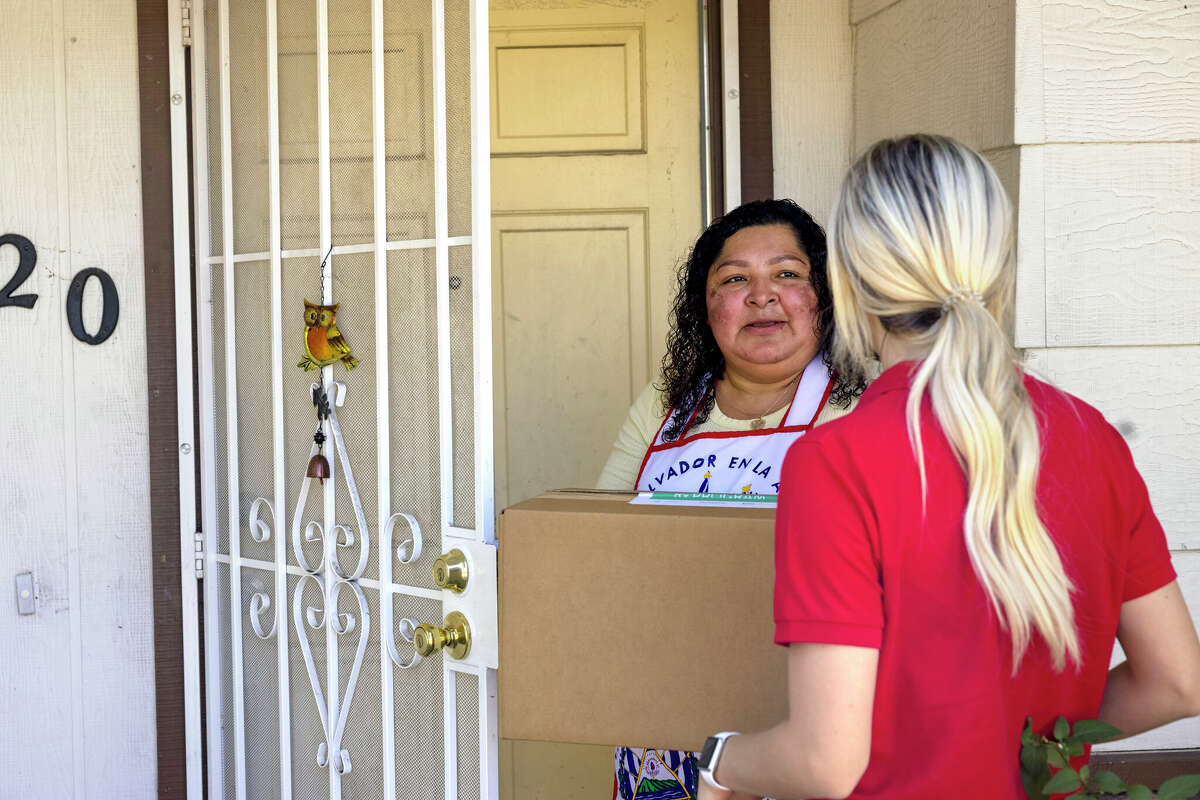People with diabetes who received biweekly healthy meal kits for a year showed improvements in managing the disease — including a key measure of blood sugar levels — according to a study released Wednesday by the Oakland research and advocacy group Public Health Institute.
The study found that participants saw decreases in their A1c level, which measures average blood sugar levels, over a three-month period. Participants who started off with the highest A1c level, which indicates their diabetes is not well controlled, saw the biggest improvements. They reported a drop in A1c from 9.73% to 8.93%, the study found.
A1c is used to diagnose diabetes. An A1c of 6.5% is considered the threshold for diabetes, according to the U.S. Centers for Disease Control and Prevention; 5.7%-6.4% is considered prediabetic.
Overall, all participants reported a less dramatic drop, from 8.35% to 8%.
Participants also reported improvements in self-managing their diabetes — doing more physical activity, checking blood sugar daily, following diabetes meal plans, and going to diabetes education or nutrition classes.
“It helped me be aware of foods I wasn’t accustomed to eating,” said Shane Bailey, a 72-year-old Stockton resident who has had diabetes for about 10 years and participated in the study. “So I learned to eat kale, squash, quinoa. … It was very helpful and educational.”

Each delivery contained ingredients to cook one meal valued at about $40, plus additional pantry items like beans, rice and nuts. The boxes came with recipes, and participants could join a Zoom cooking class to learn how to make each meal.
Dan Socie/Abbott Fund
The findings are the latest in what’s called the “food as medicine” movement, the idea that nutrition plays a major role in people’s overall health. Many U.S. cities, including San Francisco, run programs that provide free or low-cost healthy food, or offer vouchers to buy produce, in efforts to help residents manage common chronic conditions like diabetes and heart disease.
The study’s findings support policies to have health insurers cover food as medicine programs, said Maggie Wilkin, director of research and evaluation for the Public Health Institute Center for Wellness and Nutrition, who led the study. Such programs include “food prescription” and “medically-tailored meals,” where people get healthy foods to help manage specific medical conditions.
The study included about 450 adults in Stockton who had been diagnosed with Type 1 and Type 2 diabetes — mostly Type 2 — who were patients at a community health clinic in Stockton. Type 2 diabetes used to be known as adult-onset diabetes, but it has become more common in children and teens. It’s linked to physical inactivity, obesity, diet and genes.
Researchers chose Stockton because it has one of the highest rates of diabetes and prediabetes in California, with a combined 60% of residents having one or the other. Participants got one free meal kit delivered to their home every other week for one year. Each delivery contained ingredients to cook one meal valued at about $40, plus additional pantry items like beans, rice and nuts. The boxes came with recipes, and participants could join a Zoom cooking class to learn how to make each meal.

“It helped me be aware of foods I wasn’t accustomed to eating,” said Shane Bailey, a 72-year-old Stockton resident who has had diabetes for about 10 years and participated in the Healthy Food Rx study. “So I learned to eat kale, squash, quinoa. … It was very helpful and educational.”
Dan Socie/Abbott Fund
The meals were paid for by the Abbott Fund, the philanthropic foundation of the drug company Abbott, which sells glucose monitors, as part of a multiyear $15 million investment in health initiatives in Stockton that began in 2019. The meal-kit delivery program, called Healthy Food Rx, began in 2021 as part of that broader initiative, which also includes providing transportation to residents to get to medical appointments.
The study has not been published in a medical journal or peer reviewed, but it may be submitted for publication in the future. Researchers plan to present a summary of the results at next week’s annual American Association of Public Health conference.
It was not a clinical trial because there was no control group, and the blood draws to test blood sugar levels were not done as part of the study. Rather, the data on the blood sugar levels came from participants who did blood draws at their physicians’ offices and chose to share their test results with researchers. About 45% of study participants chose to share their test results.
Previous studies on food as medicine have found that Medicaid recipients who got medically tailored meals paid for by insurance ended up generating significantly less in medical expenses and that people with diabetes who received medically tailored meals reported improvements in quality of life and stress reduction.
Reach Catherine Ho: [email protected]
